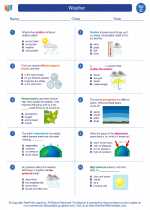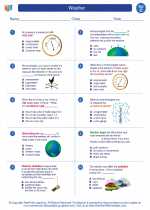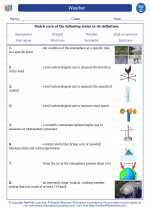What is Neuroscience?
Neuroscience is the study of the nervous system, including the brain, spinal cord, and neurons.
Key Concepts in Neuroscience
- Neurons: These are the cells that transmit information in the nervous system. They have a cell body, dendrites, and an axon.
- Synapses: These are the junctions between neurons where communication occurs through neurotransmitters.
- Brain Plasticity: The brain's ability to change and reorganize itself in response to new experiences.
- Neurotransmitters: Chemical messengers that transmit signals across the synapse between neurons.
- Neurodevelopment: The process of how the nervous system develops, from embryonic stages to adulthood.
- Neurological Disorders: Conditions that affect the nervous system, such as Alzheimer's disease, Parkinson's disease, and epilepsy.
Branches of Neuroscience
Neuroscience is a broad field that includes several sub-disciplines, such as:
- Cognitive Neuroscience: Focuses on the study of higher mental functions such as attention, perception, and memory.
- Behavioral Neuroscience: Examines the biological basis of behavior and how the brain influences actions and emotions.
- Developmental Neuroscience: Studies the development of the nervous system from prenatal stages through adolescence.
- Clinical Neuroscience: Investigates neurological disorders and their treatment.
Importance of Neuroscience
Neuroscience is important because it helps us understand how the brain and nervous system work, which can lead to advancements in treating neurological disorders, improving mental health, and enhancing learning and memory.
.◂Science Worksheets and Study Guides Third Grade. Weather
Study Guide Weather
Weather  Worksheet/Answer key
Worksheet/Answer key Weather
Weather  Worksheet/Answer key
Worksheet/Answer key Weather
Weather  Worksheet/Answer key
Worksheet/Answer key Weather
Weather  Vocabulary/Answer key
Vocabulary/Answer key Weather
Weather  Vocabulary/Answer key
Vocabulary/Answer key Weather
Weather 

 Worksheet/Answer key
Worksheet/Answer key
 Worksheet/Answer key
Worksheet/Answer key
 Worksheet/Answer key
Worksheet/Answer key
 Vocabulary/Answer key
Vocabulary/Answer key
 Vocabulary/Answer key
Vocabulary/Answer key

The resources above cover the following skills:
EARTH AND SPACE SCIENCE (NGSS)
Earth’s Systems
Students who demonstrate understanding can:
Represent data in tables and graphical displays to describe typical weather conditions expected during a particular season.